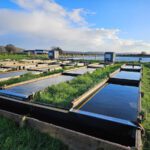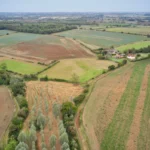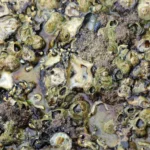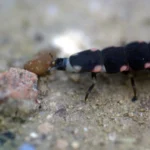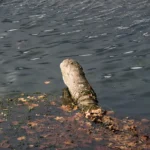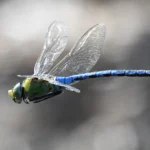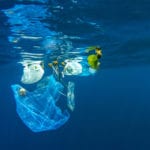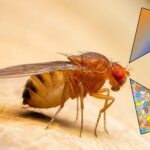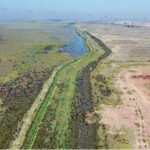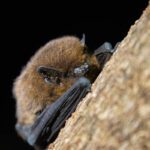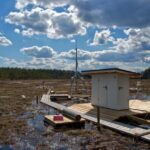Developing the tools to restore UK seagrass
A new Welsh nursery is at the forefront of a mission to restore the UK’s lost seagrass meadows, says the group behind it....
Oxygen-without-light discovery challenges deep ocean preconceptions
Scientists appear to have found that oxygen is being produced in the deep sea through a process associated with polymetallic nodules on the seafloor...
New Environment Secretary visits wetlands tackling river pollution
On 18 July The Rivers Trust and South East Rivers Trust welcomed the new Secretary of State for Environment, Food and Rural Affairs Steve...
40 tonnes of bee-harming neonics a year flow through Asia’s longest river
More than 40 tonnes of bee-harming neonicotinoid insecticides, known as neonics, have been estimated to be flowing through Asia’s longest river every year, according...
BNG deal completed in Braintree District
Essex farm Spains Hall Estate has completed what is believed to be the first off-site Biodiversity Net Gain (BNG) deal in Braintree District in...
Fibreglass found in oysters and mussels
A new study has revealed worrying levels of fibreglass in oysters and mussels. This marks the first-time fibreglass or glass reinforced plastic (GRP) particles...
European glow-worm and firefly species are in decline
Fireflies and glow-worms light up the night, creating awe and wonder across the globe. Producing their own light through bioluminescence to communicate with each...
High seas policy presents historic opportunity for climate change adaptation, scientists say
As early as next year, the ocean’s vast international waters could – for the first time – have rules for comprehensive biodiversity protection, once...
People are altering decomposition rates in waterways
Humans may be accelerating the rate at which organic matter decomposes in rivers and streams on a global scale, according to a new study.
That...
Work revives dew ponds in Sussex
Eight derelict dew ponds have been lovingly restored and are now thriving with new life, thanks to funding of over £90,000 from the South...
Tiny crop-health sensors could help cut the cost of groceries
A compact, lightweight sensor system with infrared imaging capabilities could be easily fitted to a drone for remote crop monitoring, according to the...
How will climate change affect microplastics already in the environment?
Understanding why climate change might contribute to increasing plastic pollution is the focus of a new research project starting this month at the University...
Report highlights risks to effectiveness of BNG legislation
There are risks to the long-term effectiveness of the government's new Biodiversity Net Gain (BNG) policy, launched in February, according to a 17 May...
Researchers decipher how insects smell more with less
Receptors on fly antennae work in pairs to process odour information
Whether it’s the wafting aroma of our favorite meal or the dangerous fumes seeping...
New Environment Agency excavation unearths Roman taste for oysters
A Roman oyster processing site has been uncovered during the building of a major coastal re-alignment scheme in the North-East of England. The scheme...
$3.7m crop lab will create food for ‘tomorrow’s atmosphere today’
A new $3.7m facility at the University of Essex aims to make it possible to adapt plants for a hotter drier climate, preventing threats...
Oxygen enigma: insights could help assess the liveability of other planets
New insights into Earth's carbon cycle help resolve the longstanding mystery of what caused the rise in atmospheric oxygen levels that presaged the explosion...
Island bats are valuable allies for farmers
The 17th April is international bat appreciation day and a new study has highlighted how these secretive mammals can be valuable allies for farmers,...
Defra appoints ecological consultancy as ‘responsible body’ to work with landowners
The Department for Environment, Food and Rural Affairs (Defra) has appointed a new ‘responsible body’. Ecological consultancy RSK Biocensus – and specifically its biodiversity...
Pristine peatland offers glimpse into pre-industrial atmosphere
Pre-industrial aerosol formation processes appear to be revealed by a study conducted in a pristine Finnish peatland. The investigation aimed to understand atmospheric particle...



